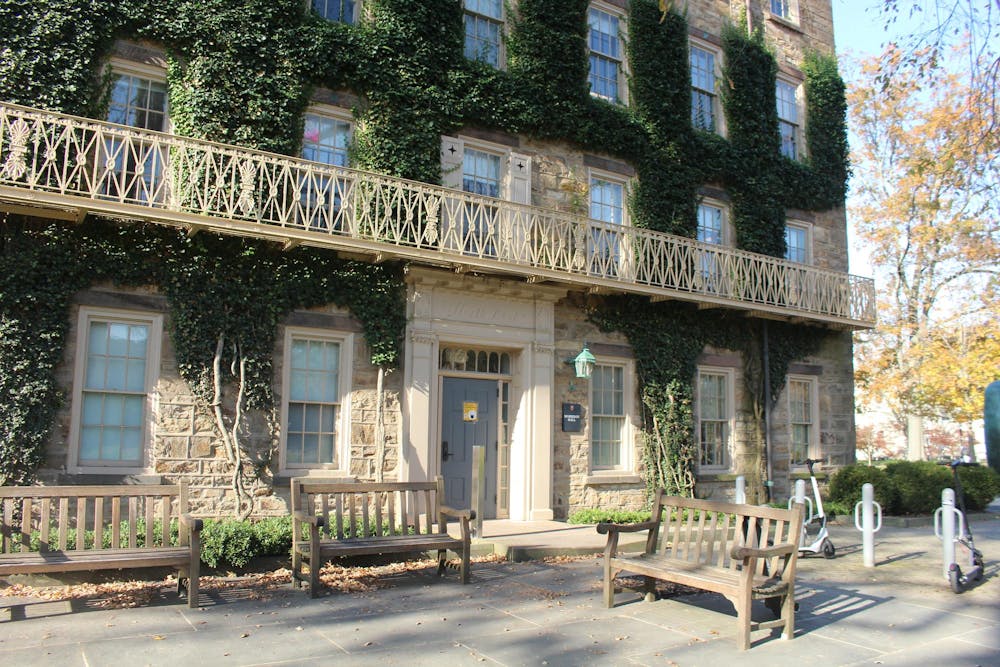On Monday, Feb. 5, Dartmouth College announced its decision to reinstate the requirement to submit standardized test scores as part of their admissions process beginning with the Class of 2029. According to the announcement, this decision was made based on research showing that test scores provide the admissions committee with valuable information about applicants.
At Princeton, the test-optional policy will remain in place for at least two more admissions cycles, but its future after the 2025–26 cycle is unknown. When asked for comment, University Communications referred The Daily Princetonian to its posted admissions policy, declining to share any additional information.
The announcement specifically cited a research study commissioned by Dartmouth President Sian Beilock, who found that high school grades and SAT/ACT scores serve as “reliable indicators for success in Dartmouth’s course of study.”
According to Dartmouth Economics Professor Bruce Sacerdote, who co-authored the study, test scores can serve to identify high-achieving students from disadvantaged backgrounds. However, the study found that many applicants did not submit their scores when they would enhance their applications.
Sacerdote added that the consideration of standardized test scores can allow low-income applicants to demonstrate their competency on an objective scale.
“Many less advantaged applicants should submit their scores which are often quite strong given their high school,” he wrote. “In the absence of using test scores, many other components of an application including counselor recommendations have been demonstrated to have a statistical bias which favors high income applicants, but is not necessarily correlated with longer run performance.”
During the COVID-19 pandemic and beginning with the 2020–21 admissions cycle, many institutions — including Princeton and its Ivy League peers — suspended the requirement to submit SAT or ACT scores in order to accommodate disruptions to coursework and students’ ability to sit for in-person exams.
Although the test-optional policy was initially only in place for the 2020–21 admissions cycle, Princeton made the decision to extend its test-optional policy for the 2021–22, 2022–23, and 2023–24 admissions cycles.

It is currently unclear whether Princeton applicants will be required to submit standardized test scores beyond the 2025–26 cycle, but the admissions website currently states that the Office of Undergraduate Admission is continuing to evaluate both “the effects the pandemic has had on teaching and learning” and “the role standardized testing should play in [the] admission process.”
Abiola Bolaji ’26, a student in the Scholars Institute Fellows Program (SIFP), a program geared towards first-generation, low-income students, did not submit his SAT scores to Princeton.
“COVID does expose how biased the SAT test and scoring is towards students who have advantages in terms of study tips and SAT prep help,” Bolaji said in an interview with the ‘Prince.’
“If you look at the history of the SAT in general, it was not made for students who have come from low-income backgrounds and communities, and people of color especially,” he added.

According to Matthew Kim, a member of Dartmouth’s Class of 2026, reactions to the shift on campus have been limited but primarily supportive.
“Most people seem to think that the reinstitution of test scores will be a net positive in the end,” Kim said in an interview with the ‘Prince.’ “There is a noticeable lack of distress on campus … I haven’t heard much protesting the decision.”
Kim said he agrees with Dartmouth’s decision to reinstate the requirement, saying that scores provide valuable information for admissions officers to use in their evaluation of applicants.
“If success is correlated with higher test scores, Dartmouth and [similar institutions] should be clamoring to admit high achievers in this area. While standardized test scores may be impacted by other factors, the format and questions are actually standardized, unlike almost everything else in our education system,” he said.
In recent years, a notable percentage of Princeton’s enrolled students have taken advantage of the test-optional policy. The Frosh Survey for the Class of 2027 found that 73.5 percent of current first-year students chose to submit SAT or ACT scores as part of their application to Princeton, while 26.5 percent did not.
Muntara Singh ’27 was admitted to both Princeton and Dartmouth as part of the 2022–23 admission cycle and chose not to submit test scores in either application.
“My test score did not reflect the level of academic rigor to which I hold myself,” Singh said in an interview with the ‘Prince.’ “I knew that I wanted to challenge myself academically in college and attend an institution where rigor was expected, however my score would have been an obstacle in my application.”
Nile White ’27, an international student from the United Kingdom, was also admitted to Princeton without submitting SAT or ACT scores. White found that the test-optional policy allowed him to focus on other aspects of his application.
“I did take the SAT a couple of times, but in the UK you have to take final exams to get into university, so I didn’t have a lot of time to prepare for the SAT specifically," he told the 'Prince.' "I think if I had spent any time on the SAT it would have taken away from my extracurriculars as opposed to schoolwork.”
Bolaji expressed his disagreement with Dartmouth’s decision.
“I think, although their efforts are in the right direction in terms of what they’re thinking about, they’re not necessarily thinking clearly enough about how low-income students don’t have the resources to prepare for an exam like that."
Ava Fonss is a staff News writer for the ‘Prince.’
Please send corrections to corrections[at]dailyprincetonian.com.








